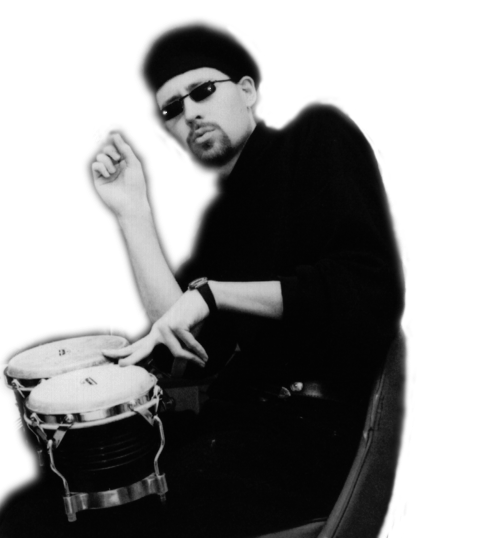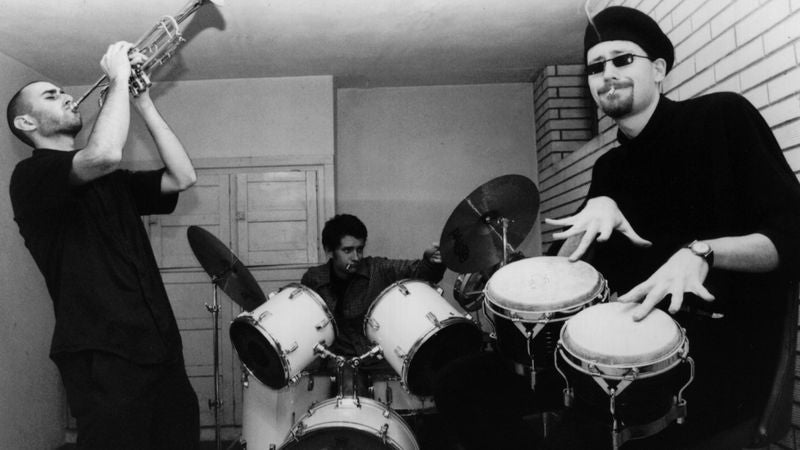Jack Corso is not your typical young American. While most 23-year-olds these days are busy starting families and buying homes in the “suburbs,” Corso spends most of his time “hanging out” in jazz clubs with his friends, listening to the music of Negroes. Corso is one of the “beatniks,” a rebellious group of youngsters about whom everyone from neighborhood priests to the President has expressed concern.
Popularized by Maynard G. Krebs in CBS-TV’s hit comedy Dobie Gillis, the beatnik is emerging as an alarming shadow figure in American society. So who exactly are they? And what do they want?

With Corso’s mimeographed book of poetry, “Hipster Incantations,” selling nearly 20 copies at a local bookstore, he’s as good a subject as any for an up-close look at America’s new “Beat Generation.”
We meet up with Corso at his apartment, or “pad.”
“What’s happening, daddies?” Corso asks as he emerges from the darkness. His attire is as strange as his lingo. Clad in a black beret, turtleneck and sandals, Corso cuts quite an off-the-wall figure. Add a goatee, dark sunglasses, and a necklace made of tiny shells, and he’s downright “out there.”
Before long, we’re off to “dig some sounds’’—beatnik slang for listening to music—at Corso’s favorite hangout, the Pussycat Lounge. As he lopes along the sidewalk, Corso re-members the moment he first heard the music of Miles Davis, a popular jazz musician.
“I was hustling down this very street, man, cold and broke, when this blazing trumpet hit me full in the face,” he says. Corso describes the experience as “heavy.”
After Corso borrows a little “bread” from our photographer to buy a ticket, we’re inside the nightclub. Corso is immediately surrounded by a crowd of bebop people, whom he affectionately refers to as “hipsters, flipsters, and all the hot sisters.” His easy-going attitude helps him associate with everybody in the club, including several Negroes.

Club owner Vince Stein is eager to talk about his most popular patron.
“He’s a poet and a tramp, a prince and a fool, and his mama don’t know where he’s at,” Stein says. “Plus, I can pass off my worst port for claret and he don’t know the difference.”
Although Corso is devoted to the wild pleasures of his beat existence, he admits that he’s lost several close friends over the years.
“Sammy. Darla. Crazy Neil. Where have they gone? Tumbled out onto America’s highways, like charcoal briquets tumbling out of their sad crinkly sack,” he muses.
Once we are seated at the table, Corso wastes no time in rolling thin black cigarettes and questioning my belief in the American establishment. I’m trying to convince him my hometown is Cleveland, not “No-wheresville,” as he claims, when the jazz kicks in.
The effect of the bebop is instantaneous. Corso’s lips curl back at the shrieking trumpets, and his limbs flail with the thumping of the drums. A fusillade of fingersnaps fly from his hands. As the band nears climax, Corso leaps out of the chair, spouting his poetic praise.
“Blow, man, blow! Gettin’ hot, at the spot, where the haves and have-nots, gather to dig the sound, goin’ crazy un-der-ground!” he cries.
Well, all right, then. You don’t have to understand Jack Corso to realize that his strange ways and lifestyle undermine the American way.
This article was originally published in Entertainment Weekly magazine in March of 1994.







